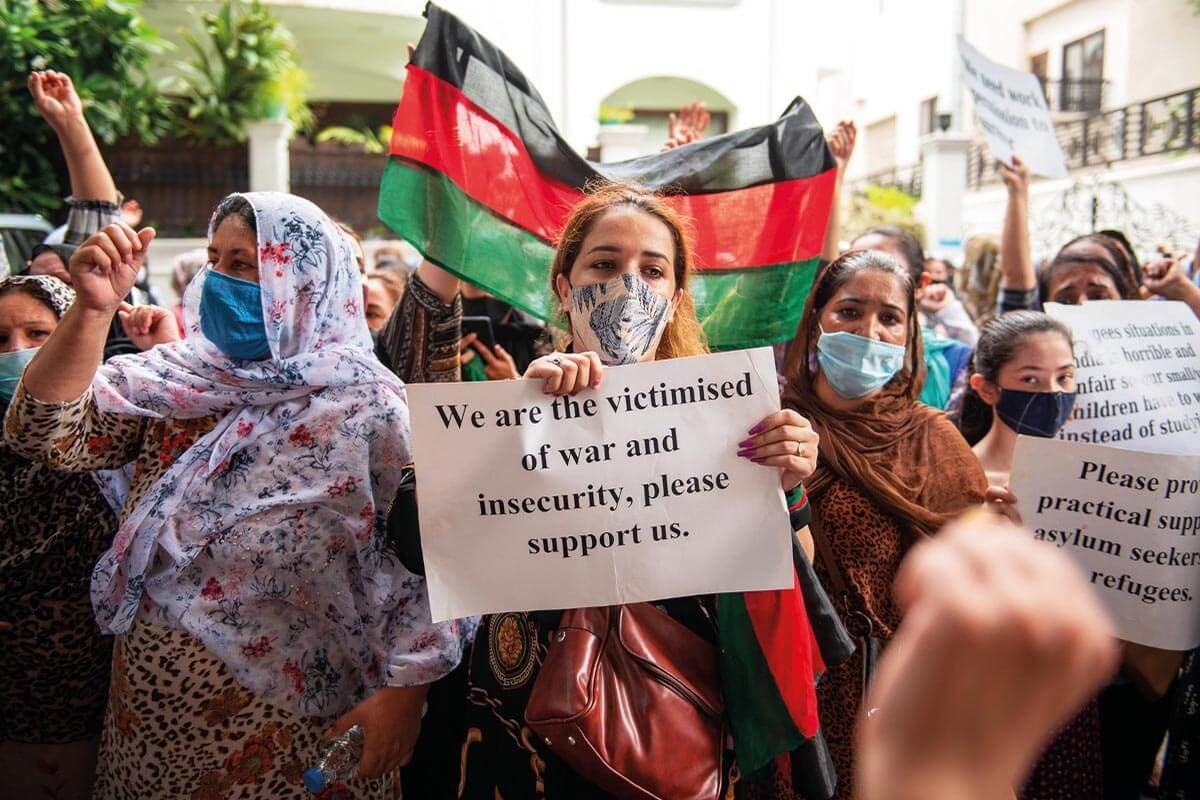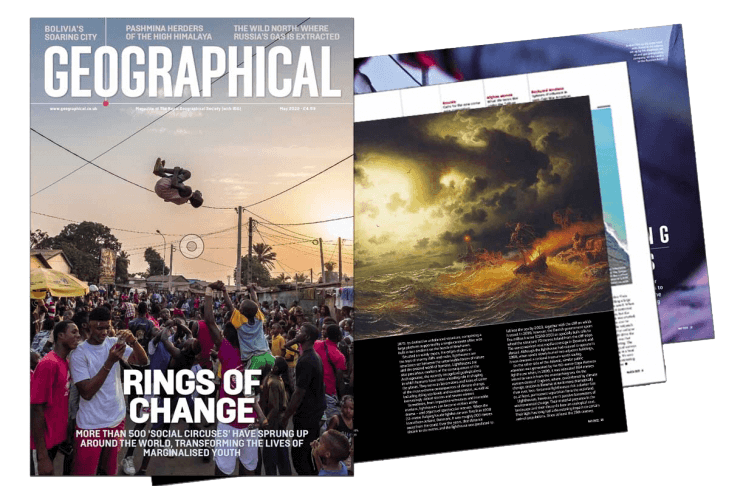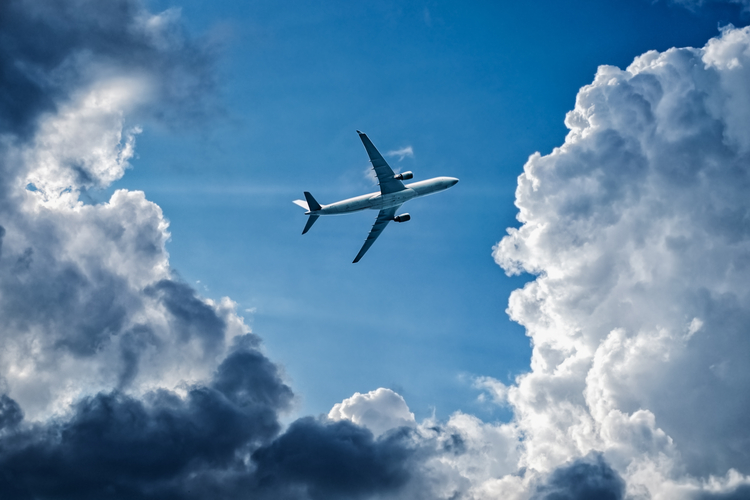
The Taliban’s takeover of Afghanistan prompted a refugee crisis, highlighting how nations differ in the numbers of people they’re willing to re-home
By
A humanitarian crisis and economic collapse has brewed since the fall of Kabul to the Taliban in August 2021. By the end of the year, more than 710,000 people were displaced internally within Afghanistan, 500,000 more crossed into Iran; thousands more are seeking asylum and resettled status abroad.
‘Many regional countries have closed their doors to Afghans by restricting visa issuance or shutting their borders. Afghanistan’s neighbours have made asylum claims nearly impossible by imposing strict border controls,’ says Shuja Ahmad, an Afghan refugee now working for the Australian Refugee Council. ‘This speaks of the need for a coordinated international effort to resettle Afghans.’
The exodus has raised alarms that a repeat of the 2015 migrant crisis – the fallout from which continues today – could occur. Then, more than a million people sought asylum in Europe when the conflict in Syria peaked; and from January 2015 to March 2016, around 250,000 refugees from Afghanistan arrived in Greece. On seeing the Taliban seize Afghanistan, Greece warned the world that the EU was ‘not ready’ for a replay of events six years ago. Determined to support and contain migrants within the region, the EU pledged more than US$1 billion in humanitarian aid for Afghanistan and neighbouring countries hosting those who had already fled.
The number of Afghans seeking resettlement abroad is expected to rise as the economic crisis continues. EU commissioner Ylva Johansson announced in December that 15 EU states had agreed to admit 38,000 Afghan refugees, additional to the 28,000 already evacuated. Some 25,000 will go to Germany, 3,100 to the Netherlands, and 2,500 to both Spain and France. The US government has requested funding for the arrival of 95,000 by the end of September this year. Canada intends to resettle 20,000. As part of its Afghan Citizens Resettlement Scheme, the UK government has said that it will resettle more than 5,000 people in 2022 and up to 20,000 over the coming years.
You may also like
Then there’s Australia. Since Kabul fell, 150,000 Afghans have submitted applications for refugee and humanitarian visas for Australia. But the Refugee Council of Australia says that 140,000 of them will be rejected. In January 2022, the nation’s minister for immigration, Alex Hawke, announced that Australia will offer 10,000 places to Afghans and another 5,000 to those reuniting with family already settled in Australia. But some people think it’s not enough. Claire Higgins, an immigration expert from the University of New South Wales, points out that once places are granted to Afghan nationals evacuated to Australia in 2021, it leaves just 4,500 places over four years. ‘Second, the minister’s announcement pales in comparison to the resettlement efforts of countries such as Canada and the USA.’
Australia has drawn criticism for its hardline policies on asylum seekers. Earlier this year, reports emerged that Australia is currently holding people in immigration detention for an average of 689 days, the highest on record and more than 12 times longer than the USA. ‘For many years, the Australian government has taken a harsh approach to refugees who sought asylum directly by boat, as compared to those who are resettled from abroad through the annual planned humanitarian programme,’ explains Higgins. ‘This includes mandatory detention with no time limit, offshore processing and short-term temporary visas.’ There are an estimated 5,000 Afghan refugees living in Australia on such temporary visas. Until the end of 2021, some were housed offshore in Papua New Guinea; some are still sent to the tiny island nation of Nauru.
Members of the Afghan community in Australia met with Hawke in February this year, urging him to recognise Australia’s ‘moral obligation’ to Afghans by issuing at least 20,000 more humanitarian resettlement places. If the figure was to increase, ‘it could help to ease pressure on frontline states such as Pakistan and Iran, which are hosting hundreds of thousands of Afghan refugees,’ says Higgins. The need for international solidarity in times of crisis, she believes, is paramount.

Subscribe to our monthly print magazine!
Subscribe to Geographical today for just £38 a year. Our monthly print magazine is packed full of cutting-edge stories and stunning photography, perfect for anyone fascinated by the world, its landscapes, people and cultures. From climate change and the environment, to scientific developments and global health, we cover a huge range of topics that span the globe. Plus, every issue includes book recommendations, infographics, maps and more!









